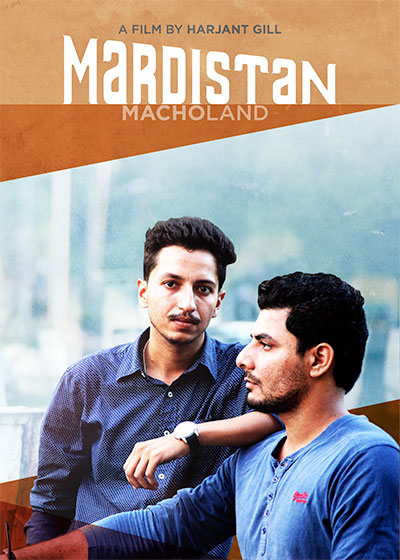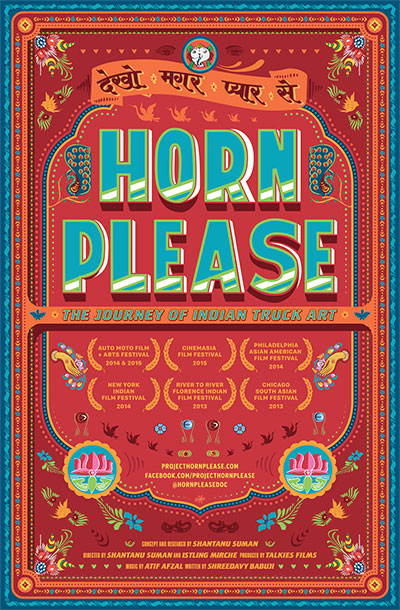 New art and film events have been added from April 14-15 for IndiaFest, a monthlong celebration of India on the University of Alabama at Birmingham campus. Sponsored by the College of Arts and Sciences’ Department of Art and Art History, Abroms-Engel Institute for the Visual Arts, and Friends of the Department of Art and Art History, admission is free and open to the public.
New art and film events have been added from April 14-15 for IndiaFest, a monthlong celebration of India on the University of Alabama at Birmingham campus. Sponsored by the College of Arts and Sciences’ Department of Art and Art History, Abroms-Engel Institute for the Visual Arts, and Friends of the Department of Art and Art History, admission is free and open to the public.
The Department of Art and Art History will continue its Creativity, Innovation and Entrepreneurship Lecture Series with Indian artist, designer and filmmaker Shantanu Suman on Thursday, April 14. Suman will discuss his current line of research through the Taxi Fabric Project at 6 p.m. in the Abroms-Engel Institute for the Visual Arts, 1221 10th Ave. South. Admission is free and open to the public.
The Taxi Fabric Project, started by Sanket Avlani, is aimed at creating a space for designers to show off their ideas and talent through the medium of fabric used within the taxis of Mumbai in India. In late 2015, the Taxi Fabric team collaborated with TEDx Gateway (Mumbai) and came out with a series of Taxi Fabrics based on the theme of Design for Social Good. The team contacted Suman to create designs for one of these taxis. Using Indian truck art as the visual theme, he created Keep Distance, a program that promotes road safety in Mumbai while trying to inculcate a better driving culture in the city. The drivers of both the trucks and the yellow-black taxis depend on their automobiles to earn a living for themselves and their families.
Indian trucks are heavily decorated, as they act as a pseudo home/family while drivers are away from home, and better-looking vehicles bring in better business. Automobile decoration also plays a significant role in carrying messages about the driver’s philosophy, good luck charms, and messages about his home and family. Similarly, a beautiful taxi is good for business, and therefore the taxi drivers decorate their taxis with vinyl decals and stickers to attract more customers. Mumbai taxi drivers have faced a lot of public scrutiny for traffic-rule violations; the city ranks among the highest in vehicular casualties. Inspired by the truck art of India, this design displays messages and couplets instructing the drivers to be safe on the road, and is illustrated with hand-painted type and motifs of birds, floral patterns, beautiful eyes and more. The aesthetic beauty of the taxi itself will act as a constant reminder to its driver to be careful, Suman says. Learn more at www.shantanusuman.com.
On Friday, April 15, Suman will lead an invitation-only workshop with UAB Graphic Design students on design and truck art in the graphic design studios at AEIVA. Designers and community leaders from Kuumba Community Art in Ensley will also join in the workshop. This workshop will help the participants reflect on their understanding of the art and design culture while using automobile decoration as a medium for visual representation. Invited student participants will be challenged to define a brand personality and create a visual language to be applied to a truck.
 Click to enlarge
Click to enlarge
All are invited April 15 to join the department for An Evening of Short Documentary Films, featuring film screenings with filmmakers Suman and Harjant Gill, in conversation with Associate Professor of Art History Cathleen Cummings, Ph.D. The evening will begin at 6 p.m., in the AEIVA.
To be screened are “Horn Please,” released in 2013 and directed by Suman and Istling Mirche, and “Mardistan (Macholand),” released in 2014 and directed by Gill. Each is roughly a half-hour long.
“Horn Please” is a documentary that encapsulates the age-old folk art form of India, truck art, which makes journeys through the dusty highways of India incredible in more ways than one. With a kaleidoscope of bright paints, motifs, typography and some unique couplets, the designs painted on the trucks do not merely stand for aesthetic purposes, but also attempt to depict religious, sentimental and emotional viewpoints of everyone related to the truck industry. This documentary focuses on the origin and evolution of truck art, and how it influences not just the world of art, but also the lives of its artists and the truckers who interact with it on a daily basis.
“Mardistan” is an exploration of Indian manhood articulated through the voices of four men from different generations and backgrounds: a middle-aged writer trying to make sense of the physical and sexual abuse he witnessed studying in an elite military academy, a Sikh father of twin daughters resisting the pressure to produce a son, a young 20-year-old college student looking for a girlfriend with whom he can lose his virginity, and a working-class gay activist coming out to his wife after 20 years of marriage. Together, their stories make up different dimensions of what it means to be a man in India today. “Mardistan” starts a conversation on critical issues including patriarchy, son preference, sexual violence and homophobia in a nation increasingly defined by social inequalities.
Gill is an assistant professor of anthropology and cultural studies at Towson University, Maryland. He received his Ph.D. from American University in Washington, D.C. His academic research examines the intersections of masculinity, modernity and migration in India. Gill is also a documentary filmmaker and has made several award-winning films that have screened at film festivals worldwide. His documentary “Roots of Love” explored the changing significance of hair and turban among Sikhs and is being screened on BBC World News, BBC America and Doordarshan (Indian National TV). He is the co-director of the Society for Visual Anthropology Film and Media Festival.